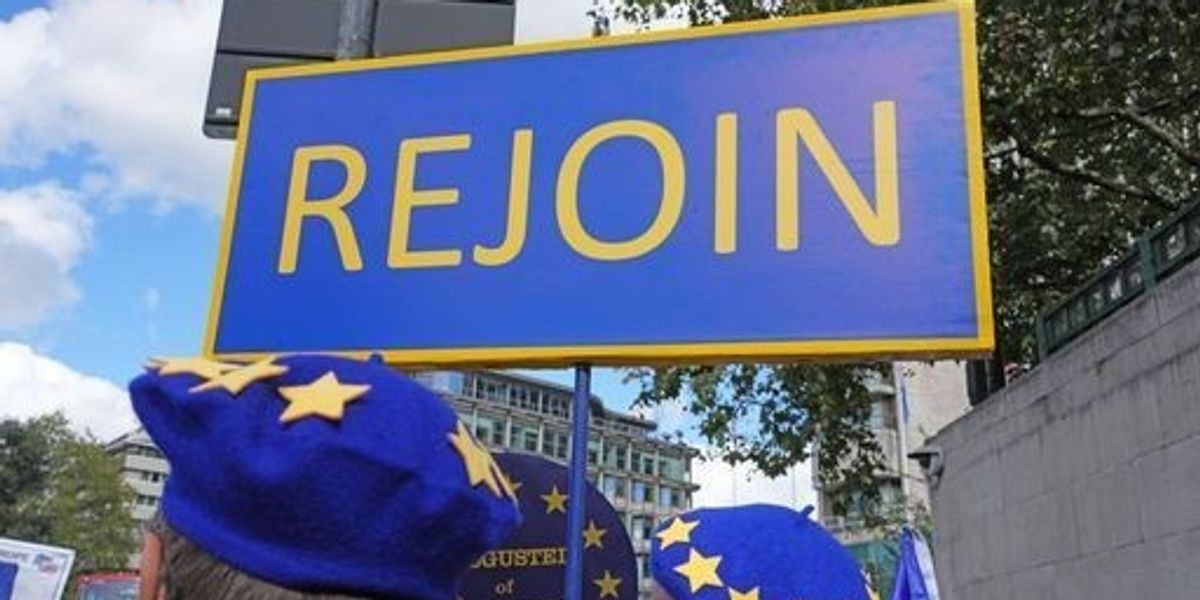Calls for a second referendum bring on a very specific imagery don’t they? The B******s to ‘Brexit’ stickers and crowds adorned with EU flags stapled to every limb and orifice. It leads one to risk whiplash from rolling their eyes too fast.
That was certainly the consensus when GB News put the prospect of a second referendum by 2040 to viewers this week.
But to play devil’s advocate, looking at the current and rising continental discontent with the EU, there is a different way to think about the prospect of another referendum and terms under which it could take place.
The fundamentals for a referendum should concern whether seismic or constitutional change is on the table.
This was certainly the case in 1975 with the referendum on continued membership of the EEC.
Granted, not being born until 16 years later it’s a little assumptive, but my intuition tells me I would have voted to continue our membership under the promise of a wider trading bloc, greater stability and security consensus allowing continental peace. Clearly, this was a sentiment held by most Britons at the time.
But what was promised and agreed morphed into something unrecognisable both politically and economically.
So, whether you agreed those changes were for the better or worse it was unavoidable that the people would eventually have their say on them through referendum – which we finally did in 2016.
Like many Brexiteers, my position on the subject certainly does not make me opposed to EU cooperation or the idea that there is a format of mutual economic benefit. However, at the time that David Cameron flew to Brussels to negotiate the minimum of what that could look like it was quite obvious David would not be victorious over Goliath in this case.
When Jean Claude Juncker, then President of the European Commission, said just days before the Brexit referendum that the EU will not reform, Britain will have to accept what it is, it was clear we had to go. An institute that will not listen to obvious failings or member grievances is doomed.
However, times are a-changing. David fought Goliath and lost, but now other nation states are increasingly rising against the EU beast. Quite frankly the biggest shock to me since Brexit is that we are still the only country to break free.
I can’t see that continuing to be the case for the next 16 years.
And so what if there are big changes? What if Frexit or Nexit come to pass with increasing anti-EU sentiment in France and the Netherlands?
There is an interesting phenomenon at play against this backdrop. A 2019 post election Eurobarometer survey showed 68 per cent of citizens supported the EU, the highest levels since 1983. However, the view that things were not going right in the EU had also risen significantly.
What if the masters of the EU realise the project is broken but the fundamentals are not?
What if something new is born?
What if there is an attractive offer of mutual economical growth, restricted but not restrictive migration agreements and better allyship in the face of global threats?
What if restrictive trade deals are gone, the belittling of sovereignty gone and the gravy-train of Brussels gone?
Well, if it that were on the table before 2040 perhaps a second referendum would be too.
However, if none of this comes to pass and if in 16 years the EU looks, sounds, and acts as it does now then I too will continue to roll my eyes so quick I get whiplash at peepings of a second referendum.

